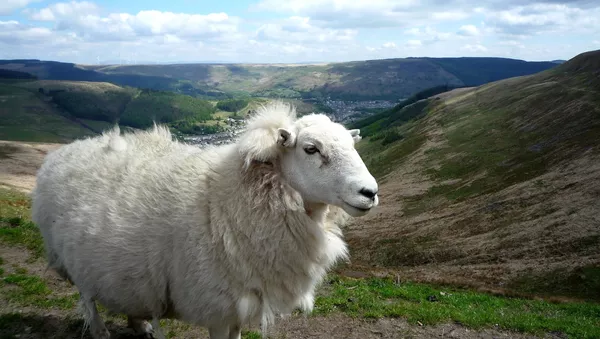The Internet of Things, which enables object-to-object communication over the internet and real time data monitoring, has typically been associated with urban environments and until now the countryside has been left out in the cold.
But now, computer scientist Professor Gordon Blair of Lancaster University has won £171,495 from the Engineering and Physical Sciences Research Council to lead a new project in Conwy, North Wales, which will investigate how the Internet of Things could work in the countryside.
Wifi sheep and internet-enabled riverbanks? It's all happening in Conwy: http://t.co/rK6BhkubSA pic.twitter.com/YmnAkoXWkC
— Daily Post Wales (@dailypostwales) February 11, 2015
Sheep with digital collars, sensors on riverbanks, rainfall and river flow monitors could all soon form part of the project. Problems from flooding and agricultural pollution to animal movements and drought could all potentially benefit from smart technology in the sticks.
The Internet of Things represents a shift in the way people gather and engage with information. Applying this booming technology to the countryside presents challenges – for example how to build a network when there are mountains and trees in the way – but researchers believe the benefits could be huge.
Wifi Enabled Sheep, Reindeer Could Bring Internet Access to Rural Areas http://t.co/fuNveOqR9g pic.twitter.com/3hBUnURnWL
— The Mary Sue (@TheMarySue) February 9, 2015
Professor Gordon Blair said: “Cities have been the focus of much of the boom in this type of technology – it has been used to keep traffic flowing on our roads, monitor air pollution and even help us find a parking spot on a busy Saturday afternoon. But the countryside faces challenges of its own, from subtle environmental changes to catastrophic events such as flooding.
“The possibilities of bringing the Internet of Things to the countryside are limitless. The next step will be to identify exactly what will be of most use in the short term and how we will frame the project.”
Wi-Fi Welsh Sheep Warning for Farmers
Sheep equipped with electronic collars to monitor their movements and understand their habits raises the possibility of creating as many Wi-Fi access points as there are animals wearing them.
Lancaster research on @BBCNews — Why sheep could be fitted with WiFi sensors: http://t.co/hPcXKe6GkU pic.twitter.com/ANerFy3SOz
— Lancaster University (@LancasterUni) February 10, 2015
Blair said: “Cities have been the focus of much of the boom in this type of technology – it has been used to keep traffic flowing on our roads, monitor air pollution and even help us find a parking spot. But the countryside faces challenges of its own, from subtle environmental changes to catastrophic events such as flooding.”
Wifi sheep. Sounds a bit wooly to me.
— Toy (@WelshToy) February 12, 2015
Dave Chadwick, professor of sustainable land use at Bangor University, which is also part of the project, said the information could give them valuable information about animal behaviour.
He said: “Wherever they congregate, whether it’s at feeding troughs or at the side of streams and rivers, they will tend to urinate there, and this can cause real hotspots for pollution.”
The idea of using sheep as wireless hotspots is not new. Sheep in Yorkshire were fitted with cameras to capture the Tour De France as it travelled through the county.
Amorous Welsh farmers should beware!




